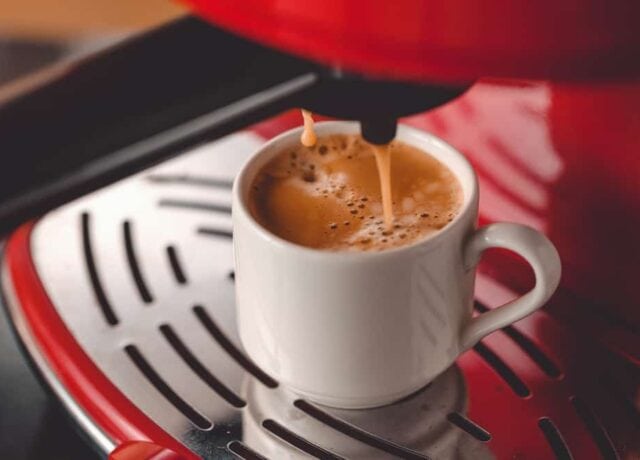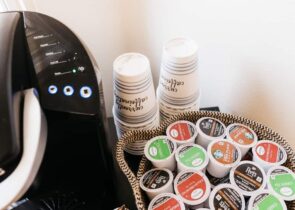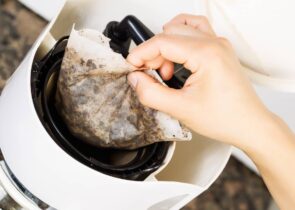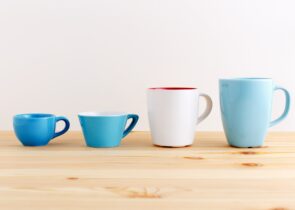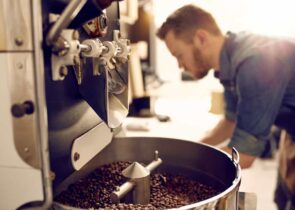You love coffee, but you don’t love the jitters and insomnia that follows if you drink too much non-decaf coffee during the day. Not to mention the caffeine withdrawal if you have to go a day or two without regular coffee (we’ve been there, not fun). That’s where decaf coffee comes in; it’s the unsung hero of the coffee world, giving you all the taste and comfort of a delicious cup of coffee without all the drawbacks.
But decaffeinated roasted coffee has its own problems, mainly in the caffeine removal process. Not every process is created equal. You may have heard of the Swiss Water Decaf method, but what is it, really? Is decaffeinated coffee made with this process any better than regular decaf?
We’ll discuss the pros and cons of both and give you some insight into why Swiss Water Decaf coffee may be the right choice for decaf drinkers.
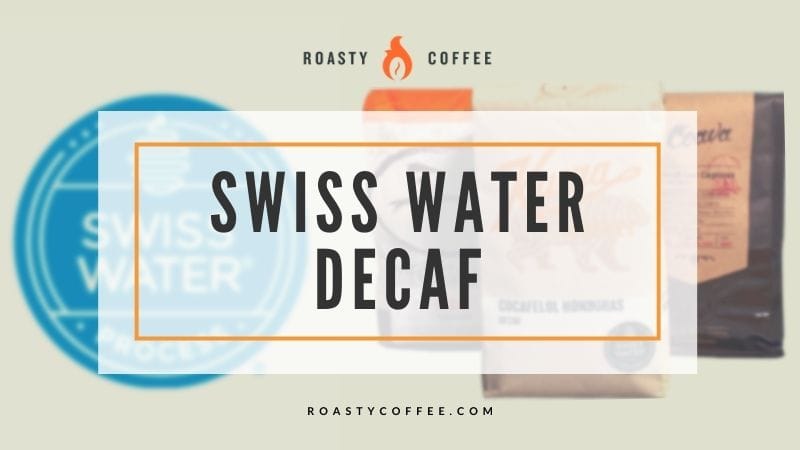
What is Swiss Water Decaf?
Swiss Water Decaf Process is a proprietary and patented all-natural decaffeination process by which coffee is naturally decaffeinated using water.
Counter Culture touts it as a chemical-free decaffeination method that gently removes the caffeine molecules from green coffee beans using diffusion rather than harsh chemical treatment.
The Swiss Water method uses a combination of water, time, green coffee extract, and a propriety charcoal filter to remove about 99.9% of the caffeine from the green beans. Check out this video below to see the step-by-step process up close for yourself:
How Is It Different from Regular Decaf?
Most traditional decaffeinated coffees are not processed just with water. The most popular and widely-used chemical decaffeination process introduces a solvent to the beans.
The caffeine attaches itself to the solvent and is stripped off of the beans. Usually, this solvent is methylene chloride.
You may also have experienced a bitter or artificial aftertaste when you’ve tried decaf coffee in the past. Sure, you could hide the flavor profile with some milk or sugar, but it’s still a bummer.
Unfortunately, this taste is likely due to the chemical method used to remove the caffeine from the coffee. The Swiss Water method won’t produce this taste because no chemicals or solvents were added to the beans.
Is Swiss Water Decaf Healthier for You than Regular Decaf?
Unfortunately, it’s no secret that most traditionally-processed decaf coffee will contain some amount of methylene chloride.
While you’ll only ingest a tiny amount of methylene chloride from your daily cup of decaf, it’s worth noting that the chemical has been banned in certain products like paint strippers because of its toxicity.
However, according to InterAmerican Coffee, the U.S. Food and Drug Administration (FDA) has determined that methylene chloride is safe in the coffee decaffeination process of coffee.
Ultimately, it’s up to you and your preferences as to whether you’re okay with drinking decaf coffee processed with methylene chloride.
On the other hand, the Swiss Water Decaf method does not use or contain methylene chloride or any other chemicals that could be a risk to your health. So as far as chemicals go, the Swiss Water method clearly comes out on top.
But in terms of the actual composition of the coffee, there’s no reason to suggest that traditional decaf is any worse for you.
What does the Swiss Water Decaf label mean on my coffee?
Despite what we’d love to think, an “all-natural” label on a bag of coffee beans doesn’t always mean what it implies. Just because a bag of premium quality decaf coffee is labeled as all-natural, it could still have been treated with chemicals during the decaffeination process.
But the Swiss Water label is different and has some standards to back it up.
If you happen to see a bag of decaf roasted coffee beans with the Swiss Water Process label, you may wonder exactly what that means. Is it Swiss Water “approved”? Is there a certification process or any regulation to determine if coffee is in fact Swiss Water processed?
If you see the blue Swiss Water label on your bag of coffee, it simply means that the roaster partnered with Swiss Water Process to decaffeinate the coffee using their proprietary method and that the process was chemical-free and water-based.
You’ll know that the decaf coffee you’re consuming will be free of additional CO2 and chemicals like methylene chloride.
Pros and Cons of the Swiss Water Decaf Process
Pros
- Since the process almost exclusively uses water, it’s environmentally friendly and won’t add chemicals to our water and air. This is a huge plus in our book!
- Since Swiss Water Decaf is chemical-free, you know you’re getting a cup of coffee that won’t have any added residual flavors and eliminates the health risk associated with ingesting additional chemicals.
- The process is incredibly effective at removing the caffeine content. While no decaf coffee is entirely free of caffeine, Swiss Water Process coffee is 99.9% caffeine-free.
- Swiss Water Process is certified Organic, Fairtrade, Kosher, and Halal. It’s also certified by the Rainforest Alliance to follow sustainable practices.
Cons
- Because Swiss Water Process decaf coffee is more expensive to produce, those costs are passed on to you, and you may find that it is far more costly.
Conclusion
So, is Swiss Water Decaf all it’s cracked up to be? Well, yes and no. It is a natural and chemical-free method that will deliver a great cup of coffee without any unwanted chemical flavors. If that’s important to you, it may be worth seeking out decaf coffee beans made with this process.
However, although regular decaf contains trace amounts of methylene chloride, you shouldn’t be afraid to drink it since researchers have determined that it’s a safe decaffeination process.
It’s important to know that traditionally-processed decaf is still considered safe, even if you may notice some chemical aftertaste.
Check with your favorite roaster and see if they use this process when creating their own decaf. Roasters can become certified in the Swiss Water Decaf method, and you’ll find the company’s seal of approval on their packaging.
As always, it’s important to do your research when choosing and purchasing coffee beans so you know where they come from and how they were processed. Making informed decisions about your coffee purchases is great for your health, the environment, and your wallet!
Happy Caffeinating!


